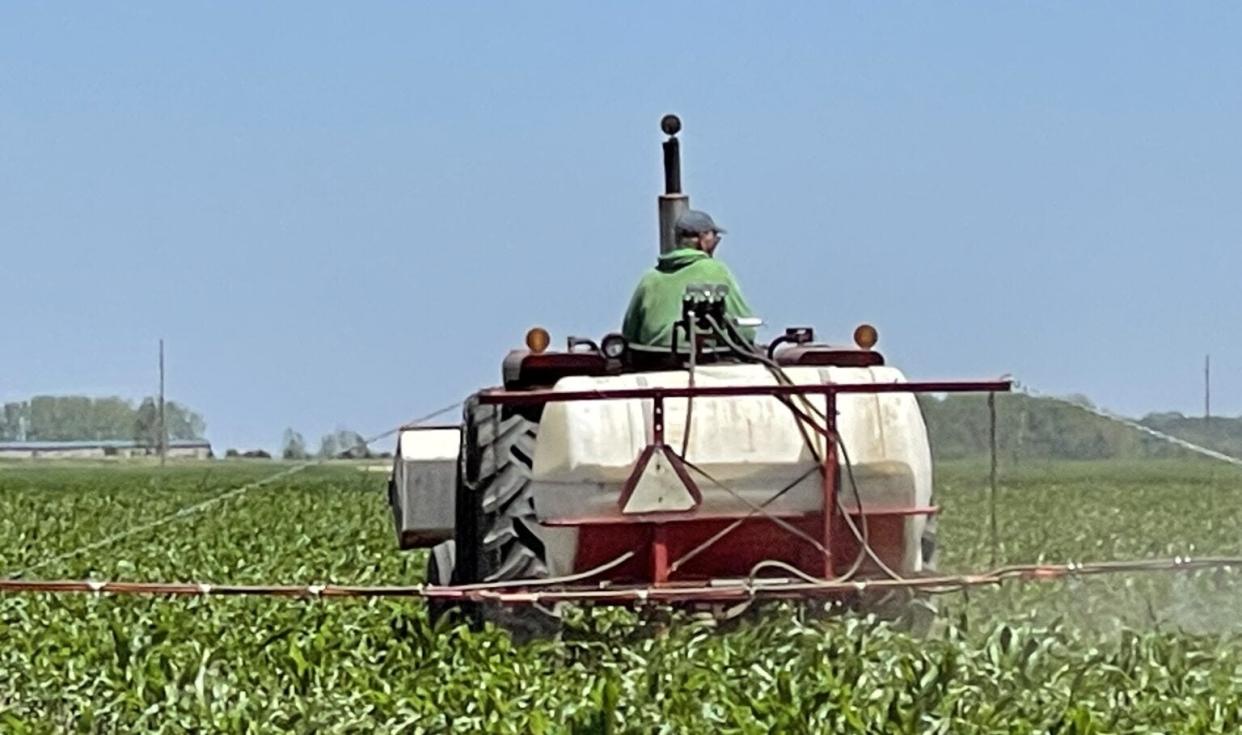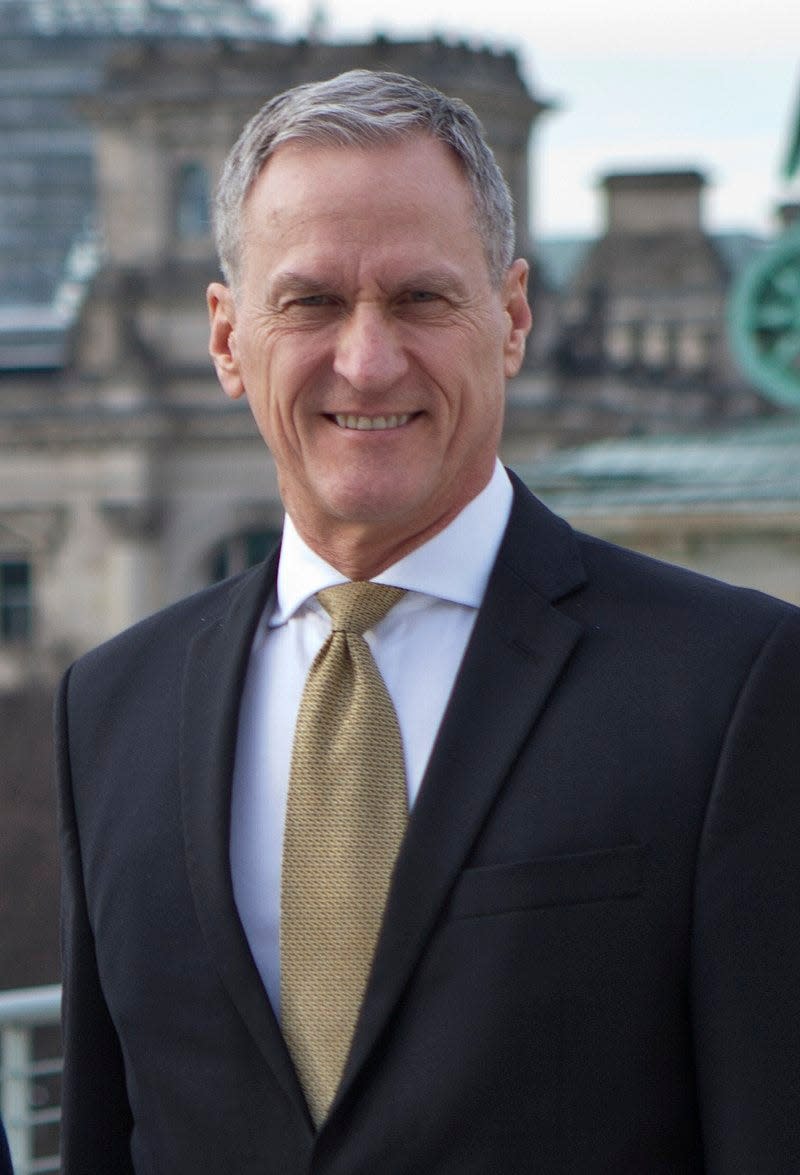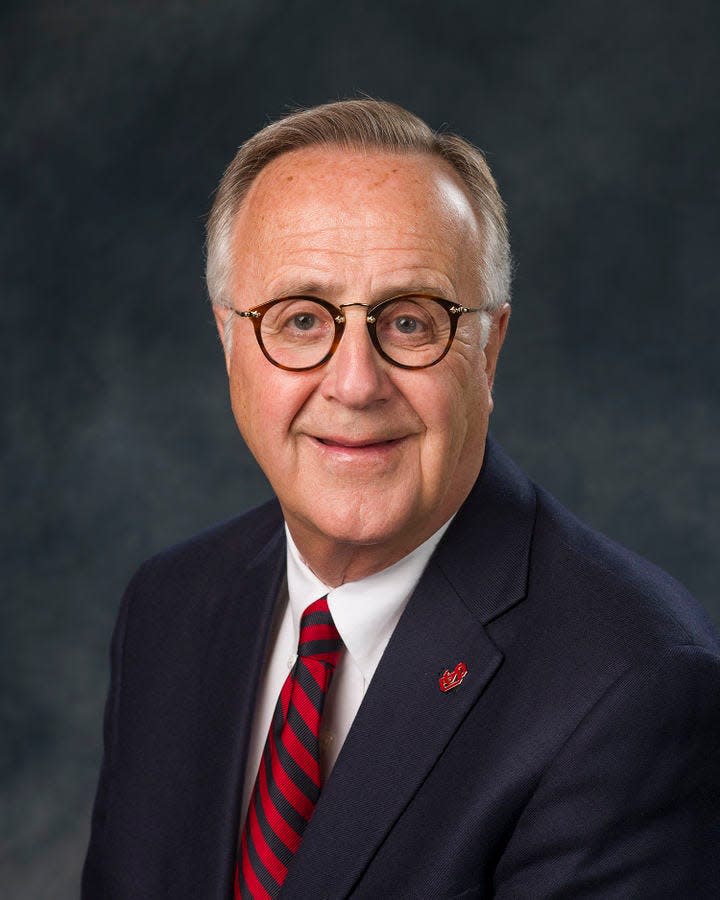Abbott, Daugaard: A safer world starts in South Dakota

Two years ago, the ripples of a military invasion half a world away were felt in our state.
Putin’s war against Ukraine may seem far away, but if you’re a rancher or farmer here in South Dakota, or someone who eats food that comes from a rancher or a farmer, you feel the impact of the invasion still, as Putin shut down exports causing the price of fertilizer and wheat to skyrocket. This was no accident. Putin’s invasion was a direct assault on Ukraine, yes, but also on America, on our allies, and on the global stability we helped build. And now, it’s a campaign that’s being joined by Iran and North Korea, with China paying close attention.
As a former Governor and President of the University of South Dakota, we know how deeply tied South Dakota’s prosperity is to what happens in the world, whether it’s the $5.4 billion in goods South Dakota businesses exported to the world in 2022, or the 1,670 international students who contributed $33 million to our economy that same year.

With 1 in 5 South Dakota jobs supported by global trade, these attacks on global stability – whether it’s Russia threatening Europe or Iranian-backed Houthis attacking shipping through the Red Sea – are exposing South Dakotans to the risks of an unstable world and increased global competition. And it’s why we can’t look away.
Take hunger. Largely driven by conflict — like Putin’s choice to block grain shipments out of Ukraine — and natural disasters, millions of people around the world face starvation and food insecurity. In fact, the World Food Program (WFP) has identified 18 hunger hotspots with more than 150 million people facing acute levels of food insecurity in the coming months.

That means millions are willing to leave their homes in search of food, contributing to more mass migration, or are more susceptible to the appeals of extremist groups, increasing the risk of terrorism. That instability creates risks for us here in South Dakota and provides a unique role for our state on the world stage. Through the power of our agriculture and business communities, we can make a huge impact around the world and in turn benefit our fellow citizens here at home.
Our farmers are the beating heart of the Heartland and an integral part of America’s global food security strategy. Take soy for example. This little bean is not only one of our top exports, but with a high protein content is a key ingredient in combating global hunger. And with almost 130,000 jobs and 30% of the economic output in our state supported by the agricultural sector, it is in our best interests to take center stage in this mounting crisis.
As South Dakotans, leading America’s approach to feeding the world is in our DNA. In fact, one of America’s most impactful programs — the McGovern-Dole International Food for Education Program — is named for South Dakota’s own Senator George McGovern alongside former Kansas Senator Robert Dole, and strengthens nutrition for school-aged children and their families in vulnerable populations to enhance food security. This has meant more children — especially young girls — have had the ability to stay in school, leading to higher literacy and education rates, which leads to more prosperity and opportunity in the long-term, while chipping away at the instability that leads to violence and mass migration.
More: Graciano Sarinana: Focus on Medicaid's expansion, not adding barriers
Thanks to the contributions of American farmers, the McGovern-Dole program has provided more than 5.5 billion school meals, supported more than 31 million children and families in 48 countries, and donated more than 1.3 million tons of U.S. agricultural commodities. In return — these investments abroad serve to advance U.S. interests, strengthen our alliances, and boost our economy.
This program is just one example of the power South Dakota has to impact the world through investments in U.S. diplomacy and development. And that’s why we were proud when, in February, South Dakota’s voices in the Senate, Senators John Thune and Mike Rounds, voted in support of the National Security Emergency Package to support America’s interests in Ukraine, Israel, and Taiwan. Following that vote, Sen. Thune said, “America cannot retreat from the world state. American leadership is desperately needed now more than any time in recent history.”
And now, to fulfill that commitment as competition with China heats up and adversaries like Iran and Russia get cozier, America needs our civilian national security toolkit in order to engage on the global stage.
South Dakota may be landlocked, but that doesn’t mean we are isolated. And it is America’s global leadership that serves as the breaker that keeps the waves of instability from far away from reaching our shores. South Dakota’s prosperity is linked to America leading globally and that’s a future we should all be working towards.
Jim Abbott served as President of the University of South Dakota from 1997-2018. Dennis Daugaard served as Governor of South Dakota from 2011-2019. They co-chair the U.S. Global Coalition’s South Dakota Advisory Committee.
This article originally appeared on Sioux Falls Argus Leader: Abbott, Daugaard: A safer world starts in South Dakota

